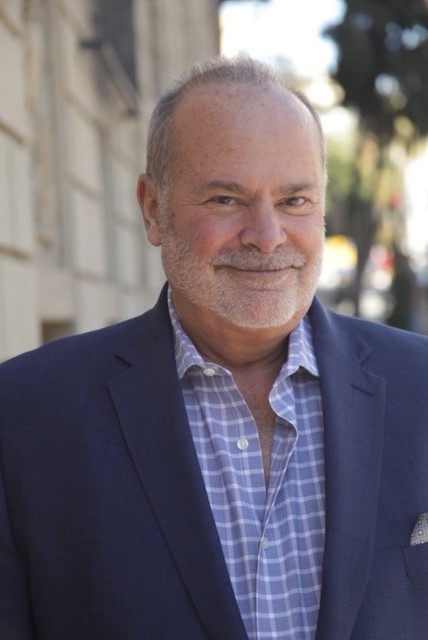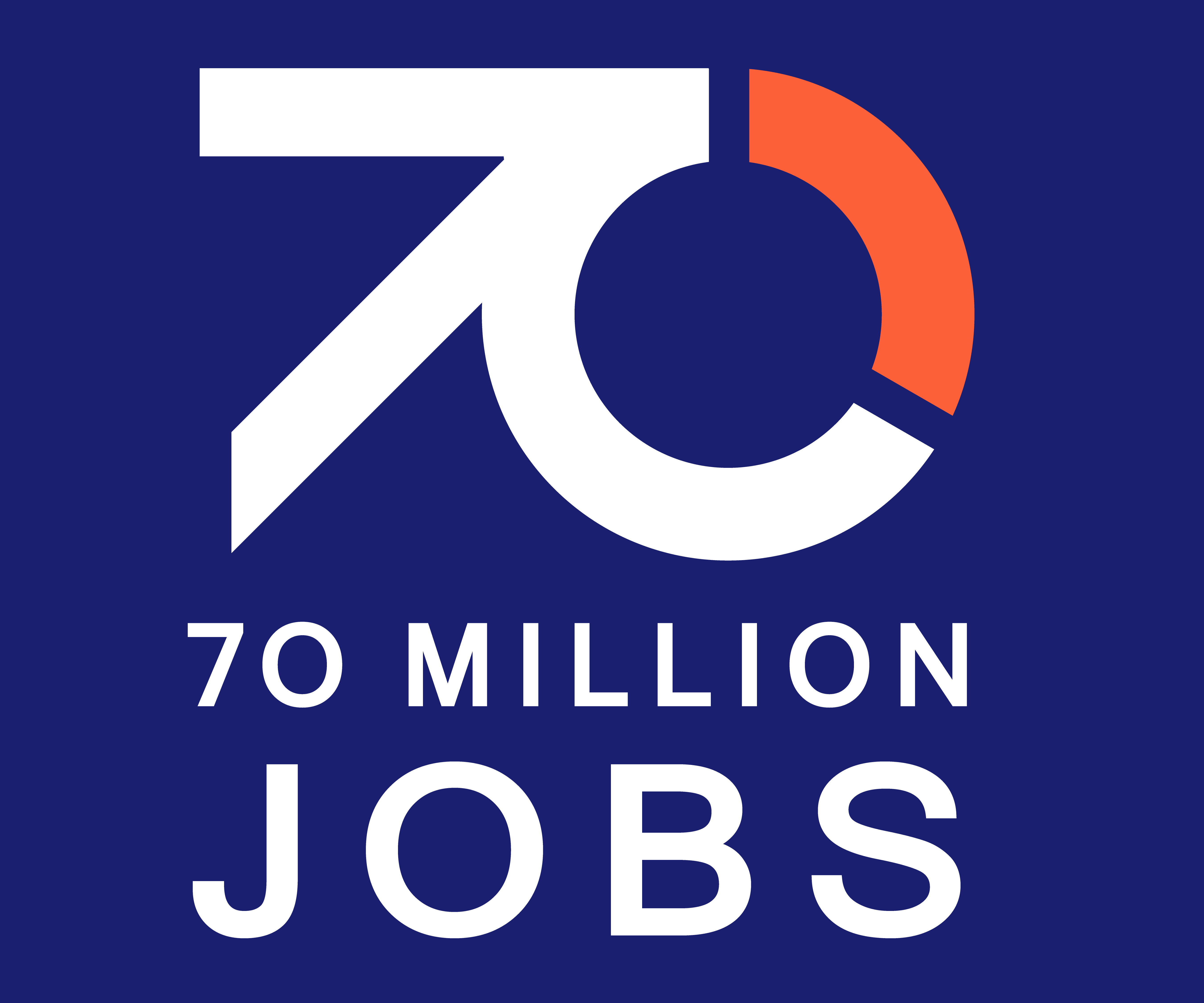Interview With 70 Million Jobs - The First For-Profit Employment Platform For Formerly Incarcerated
We had the opportunity to interview Richard Bronson, Founder and CEO of 70 Million Jobs. The company that is changing lives and finding jobs for the formerly incarcerated.

Q: Can you tell us a bit about yourself and 70 Million Jobs?
A: I launched 70 Million Jobs in October, 2016, but it became fully operational in September, 2017. I began my career on Wall Street, and made a great deal of money. At one time, I was a partner in the infamous Wolf of Wall Street firm. I left there to start my own financial services firm, and grew it into a $100 million business. Along the way, I broke some securities laws and received a two-year federal prison sentence. Prior to my sentencing, I paid back all affected parties and gave away the balance of my significant assets to charity, so I went away penniless. That was the state I was in upon my release from prison: penniless and homeless.
After several years of aimlessness, I found a home working at a non-profit in the re-entry space, Defy Ventures. I eventually became its director, but grew to feel that despite the best intentions of this and all other non-profits in the space, very little was being accomplished. Unemployment among the formerly incarcerated is nearly 30%--the highest rate of unemployment of any population in our country's history. And unemployment correlates directly with recidivism, which destroys lives, families and communities.
I felt that not only would a for-profit approach represent a great business opportunity, but combined with technology, could effectively combat unemployment and recidivism, on a national scale. I launched the company and almost immediately was recruited to go through Y Combinator. Additionally, the LA Mayor's Office asked me to partner with the city to help address problems of unemployment and recidivism. I raised a Seed Round and settled in San Francisco, where I began building 70 Million Jobs. With more than 11 million job seekers in our community, we have facilitated employment for thousands of deserving men and women, through our staffing agency and job board, working with some of the country's largest employers.
Q: How did you get the idea for 70 Million Jobs?
A: I came to realize that not only were the efforts of non-profits not successful in addressing unemployment and recidivism among the formerly incarcerated, but I knew I was not a "non-profit" guy; I'm far too aggressive for that life.
Q: How has creating 70 Million Jobs changed your life?
A: Coming out of prison, I learned the lesson of humility. Money would not be the source of my happiness. Instead, I discovered my calling in life: to help my brothers and sisters and their families optimize their chances at leading a new, productive life. I have nothing in my life but my work.
Q: Who was the greatest help in creating your company?
A: Since I had no money to neither live on nor launch a company, my earliest investors provided me with the tools to get started. And my experience at Y Combinator was pivotal in teaching me how best to approach my start-up.
Q: What is the main benefit that your company provides to the job world?
A: We solve two big problems: we facilitate employment for people who desperately need a job, and we help corporate America fill the millions of jobs that are huge challenges for them.
Q: Did you hit any roadblocks that almost caused you to throw in the towel?
A: I knew from the start that we would face many challenges: our business is very mission-driven, which is confusing to an investor; I am relatively old to be a tech start-up founder; I am also non-technical; I have a criminal record. All of these factors has made fund-raising extremely difficult, and frequently put us on the precipice of financial ruin. But we persevered.
Q: What was the final push that led you to take the risk to create your own company?
A: Throughout my life, I have been a very big risk-taker, launching ventures I knew little about. This was no different for me. I believe that greatness lies in an ability to suspend belief, to have faith in the universe and oneself, and that stunning success lives in uncertainty. I have always been comfortable existing in chaos, and have always swung for the seats. Sometimes you will strike out; other times you win the game. For me, there's no other choice.

Q: Can you please elaborate on how you place people? Are you a job placement company? Also, how do you get companies to get past their concern about hiring ex-convicts?
A: We don't call them "ex-convicts." That term refers to acts they committed in the past, and does not generally accurately reflect who they are now. As such, in the re-entry field, it's considered offensive. There are many ways in which we not "just" a job placement company:
- We operate nationally, not locally, as most companies do.
- We are focused only on this population of 70 million Americans; we alone do this
- We employ technology not generally used by other companies
- We are advocates for our community, and are involved in many ancillary activities to support it
- Unlike other commercial enterprises, we are seeking "double bottom line returns": do massive social good and build a big, successful company
- Unlike other job placement companies, we must perform a great deal of education to show companies that it makes good business sense to hire these folks
- We are compiling heretofore invaluable data regarding how our community actually does on the job. The results would surprise most people (in how well they perform)
Q: A for-profit approach is an interesting angle, how does that translate into being more effective at job placement? Does it mean the staff are paid more so they work harder? How do you generate revenue? Is it similar to a typical head hunting agency where you charge the company?
A: We are not head-hunters (who are paid a percentage of the annual salary of those they place). Because our jobs are mostly blue-collar, companies don't want to pay 20% of an annual salary for a warehouse worker, for example. Because we are for-profit, we attract people (our in-house staff) that wouldn't normally work at a non-profit, which are typically far less aggressive and results-oriented. Our people certainly care for the mission, but they're also interested in being part of a company that someday may be sold or go public, at a very high valuation, making them rich.
We operate a job board (companies pay to advertise their jobs) and a staffing company (where we serve as hirer-of-record, and mark up costs, to be paid by the employer).
Q: Do you charge the job applicants?
A: They never pay a penny.
Q: Are you looking for additional funding or have a crowdfunding campaign? If so, what are you looking for in a potential investor, and how can interested readers get in touch/learn more?
A: We are, indeed, in the midst of a crowdfunding campaign (Republic.co/70-Million-Jobs) while at the same time raising a Seed+ Round. We have investors that have solely provided funds, while others have helped introduce us to potential clients. We love all of our investors, regardless of their size investments, because we take our business so personally, and an investment in it is an investment in us, as people. I can be reached at Richard[@]70MillionJobs dot com
Q: Is there any advice you'd give to other aspiring entrepreneurs?
A: Take big chances. Defy the odds. Dare to be great. Don't think it to death---do it!
Q: Is there anything else you want to share with our audience?
A: It turns out that people with records actually do very well on the job. Who among us hasn't had to ask for a second chance?
Disclosure: Startup Watch is a platform TalkMarkets provides for startup company executives to discuss their companies in depth. TalkMarkets provides a suggested list of questions but the format ...
more



@[Richard Bronson](user:128808) it's wonderful when the work you do, can actually help others. Were you happy with the crowdfunding campaign raise? Has the additional capital been able to grow your business?
How are you handling the pandemic? I assume no one is hiring right now.
Hi Andrew, thanks for the question. You're right, hiring has significantly slowed. However, my team and I are dedicated to providing as much value as we can during this difficult time. One project we're working on--in partnership with a well-known reentry legal nonprofit--is launching a community support initiative that will provide critical information to justice-involved individuals and their families (e.g., unemployment information, health & safety tips, worker's rights, and career advancement tools and resources). As for hiring, while most industries have slowed, we are seeing massive growth in hiring for essential businesses -- these clients/areas are our focus for the time being.
That's interesting Richard, and good to see that you can pivot during a tumultuous time. But will that generate any revenue? I hope you manage to weather the storm - your company sounds like a worthwhile endeavor.
Wow, what was prison like? Any crazy stories from that time? Nice that you are doing so much good now.
@[Richard Bronson](user:128808), why on earth did you give away all your assets to charity? I think it would have been much easier to fund your startup and help more people had you not.
Hi Barry, I think it’s fair to say that it was a pretty dark time, when I was convicted and knew I was headed to prison. I was deeply ashamed by my behavior, and hated what the pursuit of money did to me. Giving it all away seemed like the only right thing to do. (I had also paid everyone back who I hurt.) That was in 2002, and I had no idea what the future would bring. I didn’t launch 70 Million Jobs until 2016
Well I applaud your efforts both then and now. You've really taken the concept of being reformed to a whole new level
Thank you!
What a nice idea for a company!
Thanks, Alexis!